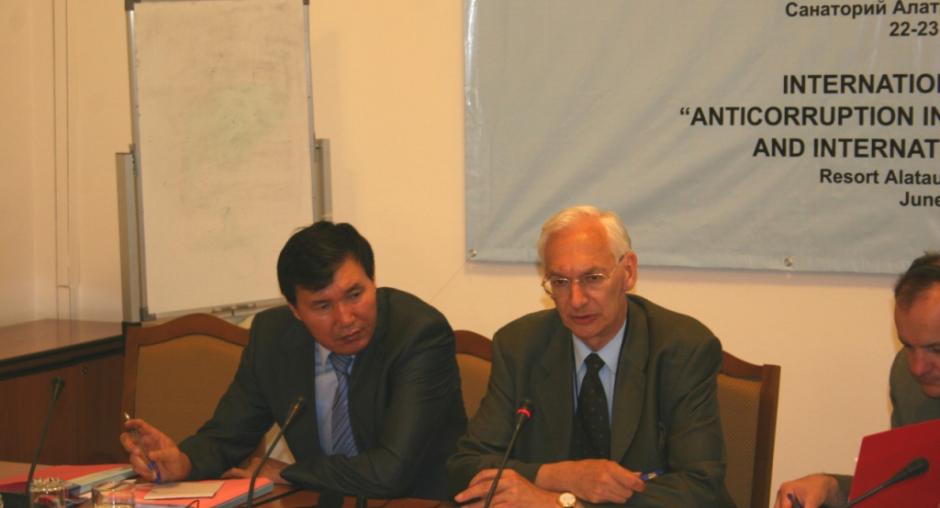OSCE Centre supports anti-corruption conference in Almaty

ALMATY, 22 June 2009 - A conference on anti-corruption initiatives in Kazakhstan and international experience, organized by the OSCE Centre in Astana, Kazakhstan's Financial Police, the Delegation of the European Commission, Transparency Kazakhstan and the Transparency International Secretariat, began in Almaty today.
The primary objective of the two-day conference is to exchange international best practices in anti-corruption and good governance and encourage the implementation of Kazakhstan's State Programme on Combating Corruption for 2006-2010.
The conference gathered around 70 representatives from Kazakhstan's Financial Police, the Ministries of Justice and Internal Affairs, the Prosecutor General's Office, Parliament and the Supreme Court, as well as from international organizations, diplomatic missions, non-governmental organizations and the private sector.
Participants discussed rule of law and the judicial system in the fight against corruption, improvements in government services and public procurement legislation, and practical recommendations on implementing the UN Convention against Corruption in Kazakhstan.
At the opening of the event, Ambassador Alexandre Keltchewsky, the Head of the OSCE Centre in Astana, said: "This conference, with its goal of exchanging domestic and international experiences in combating corruption and discussing key challenges in this area, is important for further strengthening the efforts of government authorities and improving national anti-corruption legislation."
Sattybek Ongarbayev, the Deputy Chairman of the Financial Police, added: "Building an effective and competitive economy and a thriving democratic society is inseparably linked to the fight against such a serious social ill as corruption. Therefore the implementation of anti-corruption measures has been and will remain one of the priority directions of government policy."
This event was part of OSCE Centre activities to support the government and civil society in strengthening the legal and institutional basis for combating corruption.
